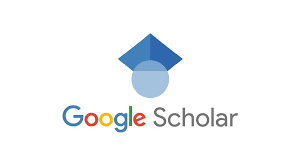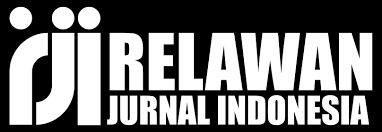ENGAGEMENT KARYAWAN GENERASI Z (STRATEGI UNTUK MENINGKATKAN PRODUKTIVITAS)
DOI:
https://doi.org/10.61722/jiem.v3i2.3800Keywords:
Employee engagement, Generation Z, productivity, work strategies, self-developmeAbstract
The purpose of this journal research is to identify effective strategies for enhancing employee engagement among Generation Z to boost workplace productivity. In the era of Generation Z, who grew up in the digital age, they possess unique characteristics that can influence their work behavior and expectations towards the work environment. This study employs a quantitative method through surveys conducted with 200 Generation Z employees across various industries. The research findings indicate that factors such as work flexibility, recognition of contributions, and opportunities for personal development significantly affect their engagement levels. Strategies such as implementing technology that supports collaboration, continuous training programs, and an inclusive company culture have proven to enhance employee productivity. The implications of this research provide practical guidance for managers in designing more targeted engagement programs to improve the performance and loyalty of Generation Z employees.
References
As’ad, M. (2015). Manajemen Sumber Daya Manusia: Teori, Proses, dan Praktik. Salemba Empat.
Handoko, T. H. (2012). Manajemen Sumber Daya Manusia. Yogyakarta: BPFE.
Setyawan, S. (2020). Strategi Meningkatkan Keterlibatan Karyawan. Bandung: Alfabeta.
Supriyanto, A. (2018). Membangun Organisasi yang Inovatif dan Berdaya Saing Tinggi. Jakarta: Gramedia Pustaka Utama.
Saks, A. M. (2006). Antecedents and consequences of employee engagement. Journal of Managerial Psychology, 21(7), 600–619. https://doi.org/10.1108/02683940610690169
Kahn, W. A. (1990). Psychological conditions of personal engagement and disengagement at work. Academy of Management Journal, 33(4), 692–724. https://doi.org/10.2307/256287
Men, L. R., & Stacks, D. W. (2013). The impact of leadership style and employee communication on job satisfaction and organizational commitment. Journal of Business Communication, 50(2), 152-173. https://doi.org/10.1177/0021943612473122
Keyton, J. (2017). Communication and organizational culture: A key to understanding work experiences. SAGE Publications.
Twenge, J. M., & Campbell, S. M. (2018). Generation Z: A century in the making. Routledge.
Pendergast, D., & Garvey, D. (2015). Generation Z: Exploring the implications of the newest generation. University of California.
Seemiller, C., & Grace, M. (2016). Generation Z goes to college. Jossey-Bass.
Harter, J. K., Schmidt, F. L., & Hayes, T. L. (2002). Business-unit-level relationship between employee satisfaction, employee engagement, and business outcomes: A meta-analysis. Journal of Applied Psychology, 87(2), 268-279. https://doi.org/10.1037/0021-9010.87.2.268
Macey, W. H., & Schneider, B. (2008). The meaning of employee engagement. Industrial Organizational Psychology, 1(1), 3-30. https://doi.org/10.1111/j.1754-9434.2007.0002.x
Luthans, F. (2011). Organizational behavior: An evidence-based approach (12th ed.). McGraw-Hill.
Noe, R. A., Hollenbeck, J. R., Gerhart, B., & Wright, P. M. (2017). Human resource management: Gaining a competitive advantage (10th ed.). McGraw-Hill.
Mulyani, T., & Wijaya, D. (2023). Strategi Meningkatkan Engagement Karyawan Generasi Z dalam Lingkungan Kerja Modern. Jurnal Psikologi Industri, 15(3), 70-80.
Santoso, R. (2024). Pengaruh Teknologi terhadap Engagement Karyawan Generasi Z di Tempat Kerja. Jurnal Manajemen dan Teknologi, 18(1), 60-75.
Hidayat, M., & Sari, P. (2022). Engagement Karyawan Generasi Z: Tantangan dan Peluang dalam Era Digital. Jurnal Sumber Daya Manusia, 20(2), 85-92.
Downloads
Published
Issue
Section
License
Copyright (c) 2025 JURNAL ILMIAH EKONOMI DAN MANAJEMEN

This work is licensed under a Creative Commons Attribution-ShareAlike 4.0 International License.












